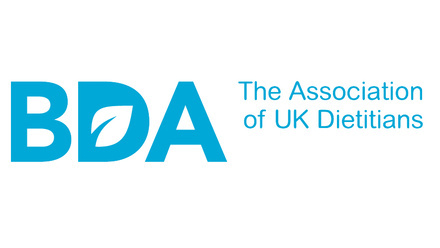Alex Ehrlich, BDA Public Affairs Officer takes a look at how the major UK political parties' manifestos align with the five BDA campaign priorities.
As the general election approaches, I've been closely analysing the major parties' manifestos to understand how they correspond with the British Dietetic Association's (BDA) key campaign priorities. While the views expressed here are my own, I believe this analysis can help inform our engagement with the next government and guide our advocacy efforts in the coming parliament.
Let's dive into the details, starting with our campaign to expand free school meals to all primary pupils. The Green Party offers the closest match, pledging free daily meals and breakfast clubs for all children up to year 6. Labour commits to providing free breakfast clubs in every primary school, which partially supports the BDA's goal of expanding access to nutritious meals for primary school children. However, there is no explicit mention of universally free school meals for all primary pupils. The Liberal Democrats promise free meals for children in poverty, which falls short of universal provision but offers a foundation for further engagement. The Conservatives and Reform UK do not directly address the issue.
Moving on to developing a comprehensive UK food strategy, I find varying levels of commitment. The Greens present the most holistic approach, emphasising sustainability, agricultural investment, and healthy diet promotion. However, no party fully meets the BDA's criteria for a comprehensive, cross-cutting strategy. Labour, the Conservatives, the Liberal Democrats, and Reform UK have made relevant pledges around food security, sustainable farming, local procurement, and agricultural funding, offering potential avenues for collaboration and influence.
Regarding independent prescribing rights for dietitians and strengthening our workforce, the manifestos are less specific. However, all parties broadly commit to expanding and supporting the NHS workforce. While not directly addressing our priorities, these pledges could provide openings for advocacy, ensuring dietetics is included in workforce planning, professional development, and expanded roles under any future government.
Fair pay for NHS staff is another area where the parties differ. The Liberal Democrats offer the clearest parallel, pledging fair pay rises through independent review bodies. Labour and the Greens make general commitments to improving workers' living standards and increasing NHS investment but lack specific pay frameworks. The Conservatives and Reform UK do not directly address NHS pay, leaving their positions less clear.
So, what does this mean for the BDA? In my view, while no party fully matches all our campaign goals, the manifestos present a nuanced picture of potential policy alignment and advocacy opportunities. The Greens demonstrate the highest overall congruence, particularly on school meals and food strategy. Labour and the Liberal Democrats offer relevant commitments on targeted meal provision, workforce support, and fair pay. The Conservatives and Reform UK, while least directly aligned, make pledges around NHS workforce growth and agricultural support that could provide inroads for dietetics advocacy.
I believe our task is to build on these foundations, regardless of the election outcome. We must engage proactively with the next government, highlighting the vital role of dietetics in addressing key policy challenges. By offering our expertise, evidence, and solutions, we can shape the implementation of manifesto commitments and push for further progress on our priorities.
In the coming months, I suggest focusing on building relationships with key decision-makers and leveraging the opportunities presented by the manifestos. Whether it's collaborating on school meal provision, shaping workforce planning, or influencing the development of a national food strategy, we have a crucial role to play. By working constructively with the government while remaining true to our campaign goals, we can advance the interests of our profession and the health of the nation.
This is an exciting time for the BDA, and I believe we should seize this moment to engage with the political process. By harnessing our collective expertise and passion, we can drive meaningful change and elevate the role of dietetics in building a healthier, more equitable society for all.
How each political party's manifesto aligns with our five key policy asks
Labour: The manifesto pledges free breakfast clubs in every primary school, which somewhat aligns with the BDA's aim of expanding access to nutritious meals for primary pupils. However, it doesn't explicitly mention universally free school meals for all primary children.
Conservatives: The Conservative manifesto doesn't include any specific pledges to expand free school meals to all primary pupils. They prioritise other areas of education policy, like increasing school funding and teacher recruitment, but don't address universal free school meal provision.
Liberal Democrats: The Lib Dems promise "free school meals for all children in poverty." This commitment partially aligns with the BDA's campaign, as it would expand free school meal access to more children from low-income families. However, it doesn't quite achieve the BDA's ultimate goal of universal free school meals for all primary pupils regardless of household income.
Greens: The Green Party manifesto includes a clear pledge to "give school children a free meal every day and free breakfast clubs up to year 6." This policy closely aligns with the BDA's campaign for universal free school meals for all primary school pupils.
Labour: The manifesto discusses supporting British farmers and setting targets for public sector food procurement to be local or produced to higher environmental standards. These commitments show some alignment with the BDA's goals around food security and sustainability. However, the manifesto lacks a clear, overarching pledge to develop a comprehensive UK-wide food strategy that addresses all aspects of the food system.
Conservatives: The Conservatives promise to introduce a legally binding target to enhance food security and increase the UK-wide farming budget. They also mention expanding sustainable farming schemes and supporting local food production. While these commitments align with some of the BDA's concerns, they don't constitute a fully comprehensive food strategy that considers all aspects of the food system, from production to consumption and public health.
Liberal Democrats: The Lib Dems commit to setting a target for 50% of public sector food to be locally sourced or produced to higher environmental standards. They also mention supporting farmers to reduce pollution and chemical use. These pledges address some of the BDA's concerns around sustainable food production and procurement. However, like the other parties, the Lib Dems don't outline a comprehensive, holistic food strategy that fully aligns with the BDA's campaign.
Greens: The Green Party manifesto strongly emphasises sustainability and transformation in the food and farming sectors. They pledge significant investments to support sustainable agriculture, reduce chemical use, and promote healthy diets. The Greens also mention working with farmers to improve soil health and animal welfare. Among the parties, the Green manifesto demonstrates the closest alignment to the BDA's desire for a comprehensive food strategy. However, it still lacks some specific details and commitments that the BDA is seeking.
None of the party manifestos explicitly mention extending independent prescribing rights to allied health professionals, including dietitians.
Labour: The manifesto pledges to recruit more NHS staff and publish regular workforce planning. They also mention supporting training and professional development for NHS workers. These general commitments to expanding and supporting the healthcare workforce could potentially create opportunities for the BDA to advocate for dietitian prescribing rights during policy implementation.
Conservatives: The Conservatives pledge to increase recruitment of healthcare professionals and improve retention. They also mention supporting training and professional development. Like Labour, these broad workforce commitments could provide openings for the BDA to push for expanded prescribing rights for dietitians as part of workforce growth and development efforts.
Liberal Democrats: The Lib Dems aim to increase NHS staffing, particularly GPs. They mention ensuring fair pay rises for NHS staff through reformed independent review bodies. These pledges, while not directly addressing dietitian prescribing, demonstrate a commitment to workforce expansion and support that the BDA could potentially leverage to advocate for prescribing rights.
Greens: The Green Party manifesto outlines significant NHS reinvestment plans, including increasing funding by at least £25 billion per year. They also mention supporting NHS staff and improving working conditions. This substantial investment and focus on staff welfare could create a favourable environment for the BDA to advocate for expanded prescribing rights as part of a broader NHS workforce enhancement agenda under a Green government.
Labour: The manifesto pledges to invest in the NHS workforce, recruiting more staff and publishing regular workforce planning. These general workforce growth commitments could provide opportunities for the BDA to advocate for specific measures to expand and diversify the dietetic workforce.
Conservatives: The Conservatives commit to increasing recruitment and retention of healthcare professionals. They also mention supporting career progression and development opportunities. While not dietetic-specific, these pledges suggest potential avenues for the BDA to push for targeted initiatives to strengthen the dietetic workforce under a Conservative government.
Liberal Democrats: The Lib Dems promise to increase overall NHS staffing levels. They also mention ensuring fair pay and supporting professional development. These broad commitments to workforce growth and support could create openings for the BDA to advocate for measures to expand and diversify the dietetic workforce.
Greens: The Green Party's significant NHS reinvestment plan, including a £25 billion+ annual funding boost, suggests a substantial expansion of the overall healthcare workforce. While dietetics isn't specifically mentioned, such a large investment could create opportunities for the BDA to make the case for dedicated funding and initiatives to grow and diversify the dietetic workforce.
Labour: The manifesto commits to improving public service workers' living standards throughout the parliament. This general pledge suggests a focus on fair pay and working conditions for NHS staff, aligning with the BDA's campaign goals. However, no specific pay framework or targets are mentioned.
Conservative: The manifesto doesn't include any specific commitments on NHS staff pay. Their overall approach to public sector pay and workforce investment is less clear than some other parties.
Liberal Democrats: The Lib Dems pledge to ensure fair pay rises for NHS staff through reformed independent review bodies. This commitment aligns with the BDA's goal of securing fair pay for NHS workers, though the specifics of the proposed pay framework aren't detailed.
Greens: The Green Party's manifesto outlines a significant NHS investment plan, with a funding increase of at least £25 billion per year. Such a substantial investment could potentially support pay rises for NHS staff. However, the manifesto doesn't include a specific pay framework or set of commitments on NHS pay.
In summary, the party manifestos show varying degrees of alignment with the BDA's five campaign areas. On free school meals, the Green Party demonstrates the closest alignment, while the Lib Dems and Labour offer partial support through expanded meal provision for low-income children and free breakfasts, respectively. Food strategy commitments are present in all manifestos to some extent, with the Greens showing the most comprehensive approach, but no party fully meets the BDA's criteria for a holistic, UK-wide strategy.
Prescribing rights is not explicitly addressed in any manifesto. However, all parties make some level of commitment to overall NHS workforce growth and support, suggesting potential opportunities for the BDA to advocate for these issues during policy implementation.
On NHS pay, the Lib Dems offer the clearest alignment with a pledge to ensure fair pay rises through independent review bodies. Labour and the Greens make broader commitments to improving worker welfare and increasing NHS investment, respectively, but lack specific pay frameworks. The Conservatives don't address NHS pay directly.
Overall, while no party fully aligns with all BDA campaign goals, the manifestos offer a mix of partial policy alignments and potential advocacy opportunities that the BDA could seek to leverage in the next parliament. The Green Party shows the highest level of general alignment, particularly on free school meals and food strategy, while Labour and the Lib Dems offer some relevant commitments on workforce, pay, and targeted meal provision. The Conservatives demonstrate the least direct alignment with BDA campaign priorities, though their broader NHS workforce growth pledges could provide avenues for dietetics advocacy.







